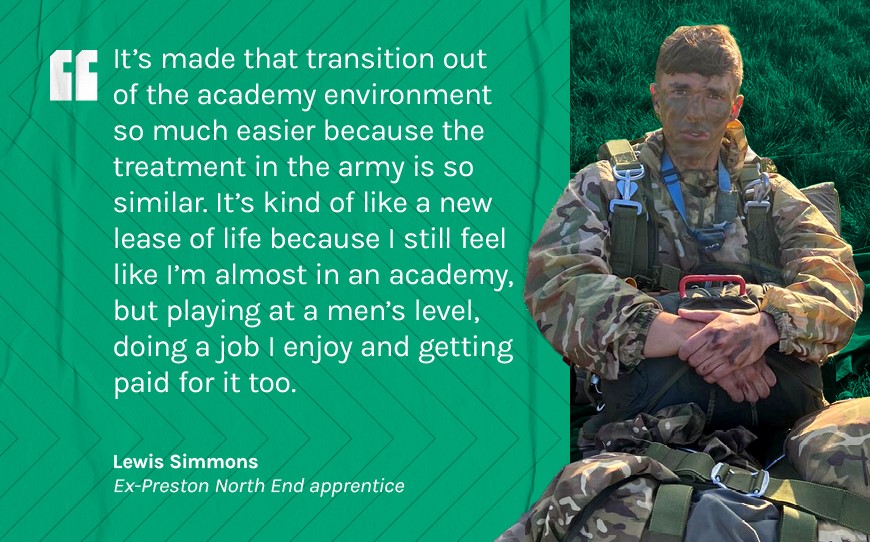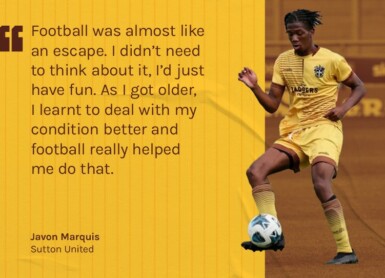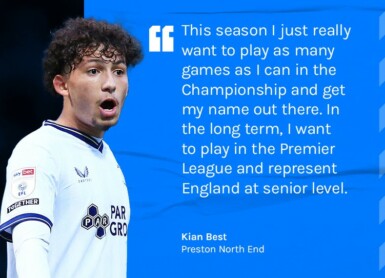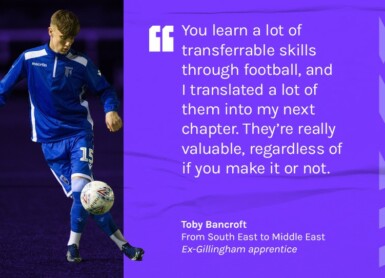In 2019, Lewis Simmons was released by his boyhood club Preston North End at the conclusion of his two-year apprenticeship. For many young footballers who suffer(ed) the same fate, knowing what to do next can be difficult. However, for Lewis, a potential career in the Army was always something that had been of interest to him.
Fast forward four years and the 22-year-old is now a Paratrooper in the British Army. LFE spoke to Lewis to find out more about his transition from the footballing world into the Parachute Regiment of the Army.
“I got scouted by Preston at eight years old and signed for them when I was nine. I played all the way through up until 16 and from there I signed a scholarship, so a two-year apprenticeship. I was 17/18 playing with the reserves but then I got to the end of my scholarship and wasn’t offered a professional deal,” Lewis told LFE. “I did kind of see it coming, although I did think at the time, I still had a chance. Look, getting a professional contract is one of the hardest things to achieve. Out of 13 of 14 lads in my team, only two got a pro deal in the end. A lot of the lads that I still speak to have pretty much fallen out of the game. A couple of them still play at semi-pro level, but other than that, no one really plays anymore, but I knew I wanted to carry on playing in some sense.
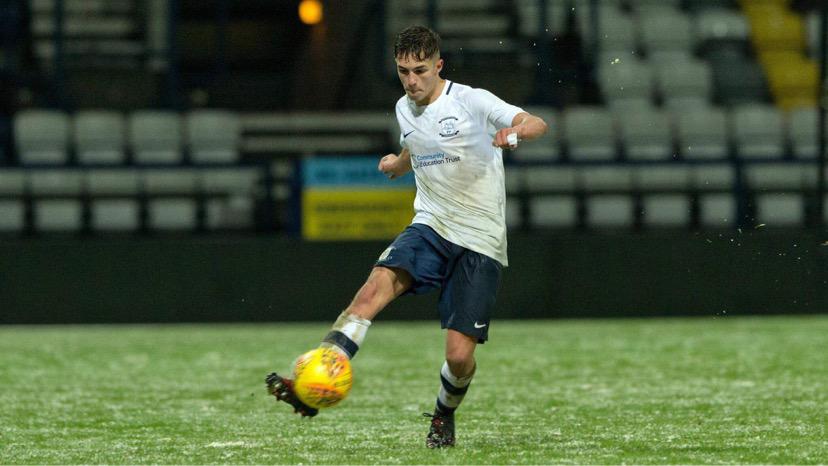
After spending nine years with the Lancashire club, Lewis admits receiving the news that he wouldn’t be getting a professional contract was hard to deal with, but for him, he used it as fuel to go and make something of himself. “Getting released probably was the hardest thing that’s ever happened to me but in my eyes you can either sit back and cry about it and feel sorry for yourself, or get up, go again, and go and do something about it.
“I just made sure I was still playing, I think that was the most important thing, just playing. Taking that initial step of going down and playing non-league football for a bit actually helped me massively. Going from playing with boys my age at 18/19 with the reserves, it’s not as competitive, there’s no real sort of winning mentality because it’s not as competitive in terms of results, it’s all individual performance based. Sometimes taking one step down (to non-league) can mean you then take two or three steps forward. So yeah, playing was it for me. Just because I’d had a little set back, it didn’t mean that was the end of football.
“I was playing for AFC Blackpool but then Covid hit. I didn’t know exactly what to do but I had always had an interest in the army, and I knew there were lots of opportunities to play football and at a good standard within the Army, so I signed up.
It’s something I’d always had in the back of my head to be honest. Growing up, obviously becoming a professional footballer was my main goal but I’d always had a back-up plan with the Army. My dad was in the Army, but he never forced it upon me, it was all off my own back. I don’t think he really wanted me to go in to be fair, but it was something I wanted to do. I joined the Parachute Regiment and that is kind of the elite of the elite. For me, it was either the Royal Marines or the Parachute Regiment. They’re the two most physically demanding in my eyes, the most challenging. I decided if I was going to do it, I wanted to join the best.
Within a year, Lewis had gone from training to try and earn a professional contract with Preston North End, to being put through his paces in brutal conditions in his attempt to become a paratrooper. “I’ went to Estonia to do cold weather survival training. It was -22 degrees; it was absolutely freezing. I was out there for five weeks and that’s essentially where the money is made because you get paid when you’re on deployment and travelling overseas. I also went to North Macedonia doing an airborne exercise working with foreign nations. Those types of deployments are training, trying to keep yourself ready for the real thing so to speak.”
Not long after the completion of his training, Lewis was thrown in right at the deep end when he was deployed to Afghanistan as part of Operation Pitting. This was a British military operation to evacuate British civilians following the 2021 Taliban offensive. “We went to extract British civilians and civilians who worked with NATO forces over there as the Taliban were taking over. I was there for 14 days, literally straight out of training and kind of like a rabbit in headlights, but it was a big moment for me.
“I’d only been out of training six weeks, so naturally I was nervous. I’d trained for 30 weeks to be in the Parachute Regiment and then all of a sudden, they’re like “you’re going to Afghanistan” with all of these experienced Paratroopers who had been there and done it. It was a shock to be honest. At the end of the day, I’m going to Afghanistan. You know it’s the real thing. When I got over there, I was a bit wary and nervous. The first couple of days passed and my adrenaline was through the roof. Yet when you realise, you’re surrounded by the best of the best, you almost feel safe. You’re around people you can trust, people who have been through the same hardship and training as you have. I know it sounds a bit cliché, but they are like your brothers. You can talk to them about anything. If you have any issues at all, you can tell them. It’s one big family and everyone looks after each other.
“Once the first few days have passed and the nerves have settled down and you actually get to work, all your training kicks in and you just realise that this is your job, and this is what I am here to do. It was a scary experience, but one I really enjoyed. “
Alongside his day-to-day job in the Army, Lewis has continued to pursue his passion for football. Thanks to the huge amount of investment put into Army sport and the endless opportunities that it provides, the footballer turned paratrooper’s transition from a training ground to the barracks has been a relatively smooth one. “There are so many different teams you can play for in the Army. My unit is the Parachute Regiment but there are hundreds of other units which can play against each other. You’ve then got the actual Army team which is like the ultimate where all the regiments combine together. So, all the best players from the different regiments play together to make up the team. Like myself, you get a lot of players who have joined the army with experience of playing in an academy previously or at a high level like me. I know lads in the team who have been let go by the likes of York City, Leicester, and Hereford, so we’ve got a lot of players who have played in a professional environment before. To be fair, it’s a really good standard of football.
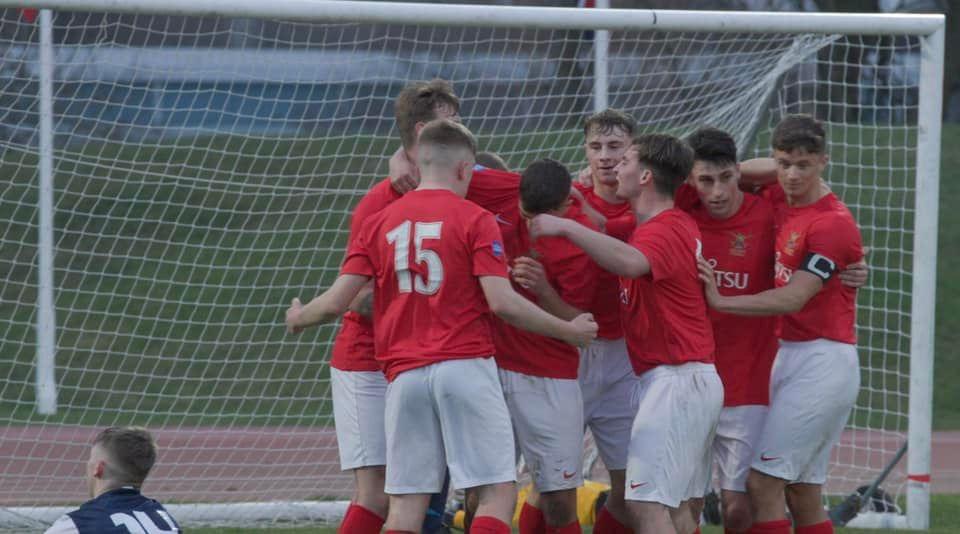
“Technically, the level playing for the U18s or reserves at Preston was higher we were all training twice a day by elite coaches and getting looked after like professionals but with the army it’s men’s football. I’d compare it to non-league football. We do get some players who play in the Conference South or North division at the weekend and play for the army as well. If I’m being honest, I’d say the standard of football in the army edges the academy standard slightly overall. You wouldn’t realise it from an outsiders perspective because in the Army the main priority isn’t football of course, it’s your job but sport is huge in the army. So much money is invested, you get your kit and tracksuits paid for, in the changing rooms we have all the sports gels, nutrition, massage therapists, analysts, you get everything. It really is like being in a professional changing room environment.
“It’s made that transition out the academy environment so much easier because the treatment in the Army is so similar. It’s kind of like a new lease of life because I still feel like I’m almost in an academy, playing at a men’s level, doing a job I enjoy and getting paid for it too.”
